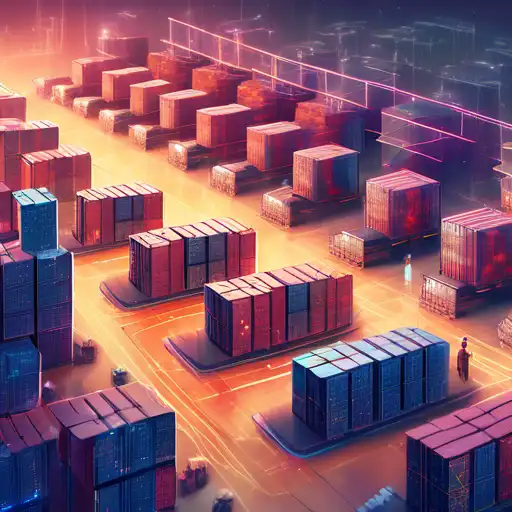The Transformative Power of Blockchain in Modern Supply Chains
In recent years, blockchain technology has emerged as a groundbreaking force in various industries, with supply chain management standing out as one of the most significantly impacted. This article explores how blockchain is revolutionizing supply chains, offering unprecedented transparency, efficiency, and security.
Understanding Blockchain in Supply Chains
At its core, blockchain is a distributed ledger technology that allows data to be stored globally on thousands of servers. This ensures that no single entity can control the data, making it highly secure and tamper-proof. In the context of supply chains, blockchain provides a transparent and immutable record of every transaction or movement of goods, from production to delivery.
Key Benefits of Blockchain for Supply Chains
- Enhanced Transparency: Every participant in the supply chain can access the same information, reducing discrepancies and fostering trust among stakeholders.
- Improved Efficiency: By automating processes through smart contracts, blockchain reduces the need for manual paperwork, speeding up transactions and reducing errors.
- Increased Security: The decentralized nature of blockchain makes it nearly impossible to hack, ensuring the integrity of the supply chain data.
- Better Traceability: Blockchain enables the tracking of products from origin to consumer, helping to verify authenticity and prevent fraud.
Real-World Applications
Several industries are already leveraging blockchain to enhance their supply chains. For example, the food industry uses blockchain to track the journey of products from farm to table, ensuring food safety and quality. Similarly, the pharmaceutical industry employs blockchain to combat counterfeit drugs by verifying the authenticity of medications throughout the supply chain.
Challenges and Considerations
Despite its potential, the adoption of blockchain in supply chains is not without challenges. Issues such as scalability, interoperability, and the need for standardization across industries must be addressed. Additionally, the technology requires significant investment and a shift in mindset from traditional practices.
Looking Ahead
As blockchain technology continues to evolve, its impact on supply chains is expected to grow. With ongoing advancements and increasing adoption, blockchain has the potential to redefine global trade, making supply chains more transparent, efficient, and secure than ever before.
For those interested in exploring more about digital transformations in industries, consider reading about how digital transformation is reshaping manufacturing.
